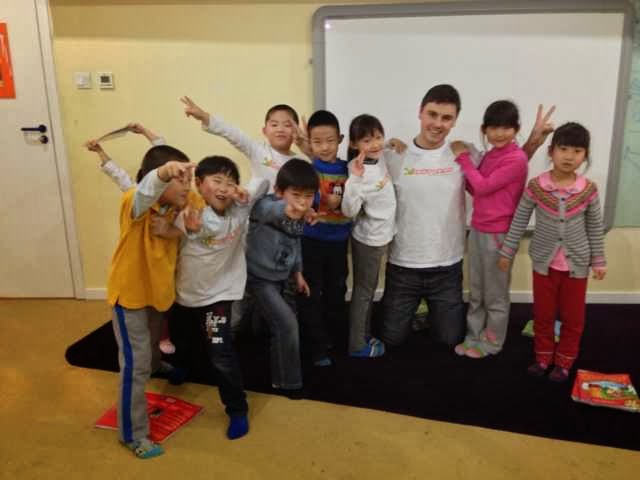Today marks the start of 15 days worth of celebrations in honour of Chinese New Year. With more than 100,000 native English teachers currently working in China, it is the most popular destination for UK-TEFL graduates. As there are so many of you already over there, and even more no doubt headed in the same direction, we thought we would take this opportunity to learn a little bit about a very important part of Chinese culture.
On New Year's Eve, families get together and have a traditional Chinese meal. This differs depending on the region you come from. In the South people eat nian gao, a sweet rice pudding, while in the North they tuck into jiaozi, a kind of steamed dumpling. People wear red and set off fireworks as a way of warding off evil spirits. They stay up until midnight to bring in the New Year.
On New Year's Day itself, children awake to find red envelopes filled with sweets and money that have been left by their parents and grandparents.
The celebrations eventually come to a close with a lantern festival on the fifteenth day of the month. These lanterns are hand painted with scenes of Chinese legends and then hung from the windows of houses or carried under the light of the full moon. A dragon, made of paper, silk or bamboo is held aloft by young men who dance around trying to collect money.
This year is the year of the horse. People born in the year of the horse are said to have horse-like personalities. They are animated, active, energetic, quick to learn independence and they have a straightforward and positive attitude towards life. They are also said to enjoy being in crowds and are noted for their wit and strong communication skills.
If you were born in the year of the horse then you're in good company. Other horses include model Cindy Crawford, astronaut Neil Armstrong and Mongol ruler Genghis Khan!
Chinese New Year, also known as the Spring Festival, starts with the first new moon of the calendar year. Before festivities can begin people must spring clean their houses to sweep away any bad luck. They also decorate their homes with good luck phrases.
On New Year's Eve, families get together and have a traditional Chinese meal. This differs depending on the region you come from. In the South people eat nian gao, a sweet rice pudding, while in the North they tuck into jiaozi, a kind of steamed dumpling. People wear red and set off fireworks as a way of warding off evil spirits. They stay up until midnight to bring in the New Year.
On New Year's Day itself, children awake to find red envelopes filled with sweets and money that have been left by their parents and grandparents.
 |
| Jiaozi: Eaten at New Year in Northern China |
The celebrations eventually come to a close with a lantern festival on the fifteenth day of the month. These lanterns are hand painted with scenes of Chinese legends and then hung from the windows of houses or carried under the light of the full moon. A dragon, made of paper, silk or bamboo is held aloft by young men who dance around trying to collect money.
 |
| Chinese New Year coming to a close |
This year is the year of the horse. People born in the year of the horse are said to have horse-like personalities. They are animated, active, energetic, quick to learn independence and they have a straightforward and positive attitude towards life. They are also said to enjoy being in crowds and are noted for their wit and strong communication skills.
If you were born in the year of the horse then you're in good company. Other horses include model Cindy Crawford, astronaut Neil Armstrong and Mongol ruler Genghis Khan!
 |
| Cindy Crawford: A famous horse |
Take a course with UK-TEFL and you could find work in China a matter of weeks. We have plenty of Chinese placements available, all of which can be viewed on our Finding Work pages.













